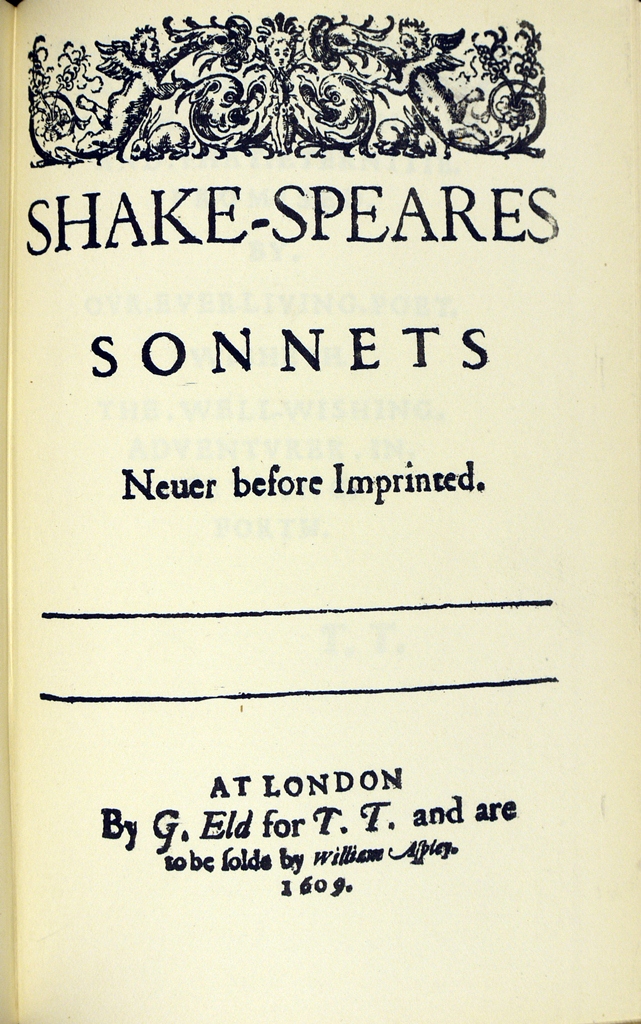

For instance, Kuin's argument that "Behind SHAKE-SPEARES SONNETS stands. Readers interested in pleasurably productive criticism on Astrophil and Stella, Amoretti, and the Sonnets will be rewarded.

of otium, not of neg-otium" (22): "the terrifying freedom of pleasure" (25). In this, readers will recognize Kuin's attempt to demystify recent political criticism: "critical activity. of criticism": "the text" is to "become" a "partner in the living of. Kuin's Barthesian-based point merits emphasis: "the accomplishing of a text. thinking of the text by the critic" (11). Accordingly, a "modern criticism would communicate. To sketch in a modern criticism, he draws on three "principles": "pluralism, discontinuity, and uncertainty": the "truths we arrive at concerning a text are multiple, discontinuous, and uncertain. His intellectual content is disciplined: "What I want to sketch and plead for is a modern criticism." If we think Kuin "a little late," he reminds us that "criticism has not yet had its modern revolution" (9). Kuin's theoretical acumen is prodigious: Barthes ("the most seminal influence" ), Riffaterre, Derrida, Blanchot, Bataille, as well as Foucault, Eco, Veyne, Ricoeur, Aries, Goldberg, and Hartman. I have also learned a lot, including about the sonnet sequences. Indeed, I have derived a good deal of pleasure from Chamber Music. Pleasure is, ultimately, what it is about: a difficult pleasure, a committed pleasure, a risk-taking pleasure" (xi). "he book's voice can best be heard as an intimate one, comfortable, amused at times, sharing the excitement of thinking beloved texts in new ways. Different readers will hear different sounds. This is at once the book's courage and its danger, its originality and its limit. In effect, Kuin is trying to re-invent academic discourse, and what better menu than "one of the great gourmet pleasures of Western literature": the chamber music of sonnet sequences (ix). But that is Kuin's point: we have lost the pleasure of criticism (233-34). She has taken to this age better than I: she is, in fact, enjoying herself" (115).įor readers in a hurry, this will not do. Yet movement 7, "From the New World: Will Archer's Diary," uses the language of "myth" to allow Eros, "the only myth that really matters" in sonnet sequences, to speak in his own person (235): "Saturday: Interrupted by Mother. The second movement, for instance, is "a rigorous application of Riffaterrean semiotics to three sample sonnets" (AS 29, Am 15, and Son 61) in "an equally rigorous expository discourse" (234). are not chapters" but "movements in a quartet" (233). on the inseparability of its 'manner' from its 'matter'" (233). By his own admission, Kuin has written "an odd book" "really two books: a book about sonnet-sequences using a modern method, and a book about modern criticism using three Elizabethan sonnet-sequences as an example. If, however, you are content - or searching for a quick read on the sonnet sequences of Sidney, Spenser, and Shakespeare - you might wish to do your listening elsewhere. If academic life has got you down, listen to Chamber Music. Toronto: University of Toronto Press, 1998.

APA style: Chamber Music: Elizabethan Sonnet-Sequences and the Pleasure of Criticism.Chamber Music: Elizabethan Sonnet-Sequences and the Pleasure of Criticism." Retrieved from 1999 Renaissance Society of America 14 Nov.
#ELIZABETHAN SONNET SEQUENCES FREE#
MLA style: "Chamber Music: Elizabethan Sonnet-Sequences and the Pleasure of Criticism." The Free Library.


 0 kommentar(er)
0 kommentar(er)
